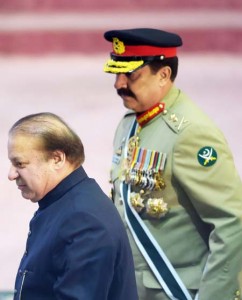Mohammad Jamil
India has been trying to portray Kashmir as integral part of India in one way or another. Now, it has moved a controversial Geospatial Information Regulation Bill in the assembly, which aims to restrict geographical depictions of Indian and disputed Kashmir to those that are government-approved. Pakistan has expressed serious concern to the United Nations (UN) Secretary General and the President of the UN Security Council (UNSC) over efforts to pass into law the controversial Geospatial Information Regulation Bill. Under the draft bill, anyone distributing a map the Indian government deems to be ‘wrong’ could be liable for a billion-rupee fine and jail term. Foreign Office Spokesman Nafees Zakaria said India’s “incorrect and legally untenable” official map, in violation of UNSC resolutions, displays the disputed territory of Azad Jammu and Kashmir as part of India.
A letter sent to the UN in this regard by Pakistan’s permanent representative in New York calls on the body to uphold the UNSC resolutions and urge India to stop acts that are in violation of international law. Pakistan also urged the international community and UN to fulfill their commitment to the people of Indian Occupied Kashmir by holding an independent and impartial plebiscite under UN auspices as per resolution of UNSC. Last week, Prime Minister Nawaz Sharif joined the leaders of Tajikistan, Kyrgyzstan and Afghanistan for the launching ceremony of CASA-1000 Power Project in front of a map, which depicted Gilgit Baltistan and Kashmir as part of India. This shenanigan was picked by Pakistanis on social media who slammed the government for its failure to get the wrong map removed before the launching ceremony.
Tariq Fatemi said: “Federal Water and Power Minister Khawaja Asif spotted the wrong map and conveyed it to Tajik authorities immediately and that brochures provided to delegates were showing a correct map.” In 2014, India had suggested at a meeting at the UN Security Council that the U.N. Military Observer Group in India and Pakistan (UNMOGIP) be wound up, as it had been ‘overtaken’ by the Simla Agreement of 1972. India had taken the plea that following Simla Agreement, the two countries were resolved to settle their differences by peaceful means through bilateral Agreement. However, Pakistan had taken the position that Jammu and Kashmir is a disputed territory, which is still on UN agenda; and that resolutions are still valid that gave the right to the people of Kashmir to decide about their future.
Whereas Pakistan military continued to lodge complaints with UNMOGIP about ceasefire violations in Kashmir, India lodged no complaints since January 1972, and restricted the activities of the UN observers. It is true that according to Tashkent Declaration after 1965 War and Simla Agreement after 1971 War, both India and Pakistan had agreed to resolve all disputes through bilateral dialogue. But it never meant that UNSC resolutions have become redundant. In fact, the Kashmir dispute is very much alive in the UN. In case, India continues to balk at resolving the Kashmir dispute either on the basis of the UNSC resolutions or any arrangement, which is acceptable to India, Pakistan and the people of Kashmir, there can never be a durable peace in the region. The international community has to understand that Tashkent and Simla agreements were signed by Pakistan under duress.
However, one should not ignore the fact that Article 103 of Chapter XVI of the UN Charter clearly states: “In the event of a conflict between the obligations of the members of the United Nations under the present Charter and any other international agreement, their obligation under the present charter shall prevail”. Unfortunately, both the Congress and BJP have identical stance so far as relations with Pakistan and resolution of Kashmir issue are concerned. The Congress leaders often expressed willingness to discuss all issues or disputes with Pakistan including Kashmir, but when pressed for meaningful dialogue to resolve Kashmir dispute, they said Kashmir was an integral part of India. The BJP had vowed to act tough with Pakistan, and would not discuss Kashmir issue with Pakistan. Today, Kashmir stands as a potential nuclear flashpoint which could consume the lives of millions of people in an instant.
Indian hatred and animosity against the Kashmiri Muslims is deep-seated and its reflections can clearly be seen through Indian repressive tactics including torture, extra-judicial killings, rape and fake encounters by Indian Security Forces in IOK that continue unabated. The aim is to deter Kashmiri populace from demanding their right of self-determination. The repression, oppression and atrocities by Indian forces have turned Kashmir into a hell that would stretch Dante’s imagination reflected in his famous poem Divine Comedy. However, these acts could not break the will of Kashmiris. The heroic struggle waged by the people of Kashmir is unparalleled in the history; they are committed to continue their struggle till their objective is achieved. It has to be said that no solution can be found without participation and consensus of the people of Kashmir.





